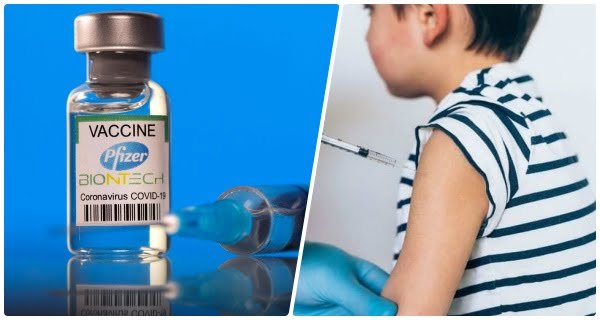
Christchurch: New Zealand’s drug regulator MedSafe has given provisional approval to the Pfizer vaccine for children aged 12 to 15 years, and Prime Minister Jacinda Ardern is expected to get cabinet approval next week, after which 12-15-year-olds will be able to get the vaccine when it’s their turn. It is true that children have a lower risk of serious illness or death from COVID-19 than older people, yet they need to be vaccinated for two reasons.
First, if children are infected with the virus they can spread it to other people, including high-risk groups or people who cannot be vaccinated for medical reasons. Many countries have seen outbreaks of the disease begin in younger people and spread to older people, leading to hospitalization and death.
Second, even though the risk of death from the disease in children is very low, children can still suffer long-term health complications as a result of COVID-19, often referred to as a prolonged COVID. It has been seen that a large section of the younger age group has been affected by it. MedSafe’s approval of vaccination in children is based on solid data showing that the vaccine is safe and highly effective for this age group. It follows similar moves in Europe, the US, and Canada.
Vaccinating teens reduces their risk of getting sick and spreading the virus to others. By getting vaccinated, we are not only protecting ourselves but also the people around us. New Zealand’s new vaccination plan for children In New Zealand, there are 265,000 children in the 12-15 age group, which is more than 5% of the total population. Add to this the 80% who are over the age of 16, this means that the Pfizer vaccine has now received MedSafe approval for use in 85% of the population. This is good news because to reach population immunity (sometimes called herd immunity) we will actually need to vaccinate as many people as possible. The vaccine is not mandatory and it is likely that not everyone will want to take it. This means we may need to vaccinate some children at an early age. Trials are underway to assess whether the vaccine is suitable for children aged six to 11 years.

Director-General of Health Ashley Bloomfield said MedSafe would consider these when test results are available. We know that there is a strong association between age and severe risk of COVID-19. This makes sense for the general vaccination policy of starting with older people and gradually moving to younger age groups, as Ardern announced last week. There may be exceptions – teenagers living with border workers or who have underlying health conditions may be vaccinated earlier. There are other risk factors as well. We know that as a result of long-standing systemic racism in the healthcare system, Māori and those in the Pacific are at greater risk of requiring hospital treatment for COVID-19. Therefore, following a uniform policy should ensure that the Māori and Pacific communities are given priority for early access to the vaccine. Moving towards collective immunity
New Zealand is currently at risk of infection with COVID-19 from countries around the world and vaccination can reduce that risk. This is the reason why the government has planned to vaccinate everyone by the end of the year. Ardern said New Zealand’s already placed orders for the Pfizer vaccine would provide enough doses to give two doses to 12-15-year-olds. Now it is up to all of us to do our bit and get vaccinated when it is our turn. Everyone who vaccinates is contributing to our collective immunity against the virus. The more we can gain our collective immunity, the better we will be as a community, and the more options we will have when it comes to safely allow international travel to resume. Immunization of youth will be an important part of this effort and this latest announcement is an important step in the long journey towards the end of the COVID-19 pandemic.





















































